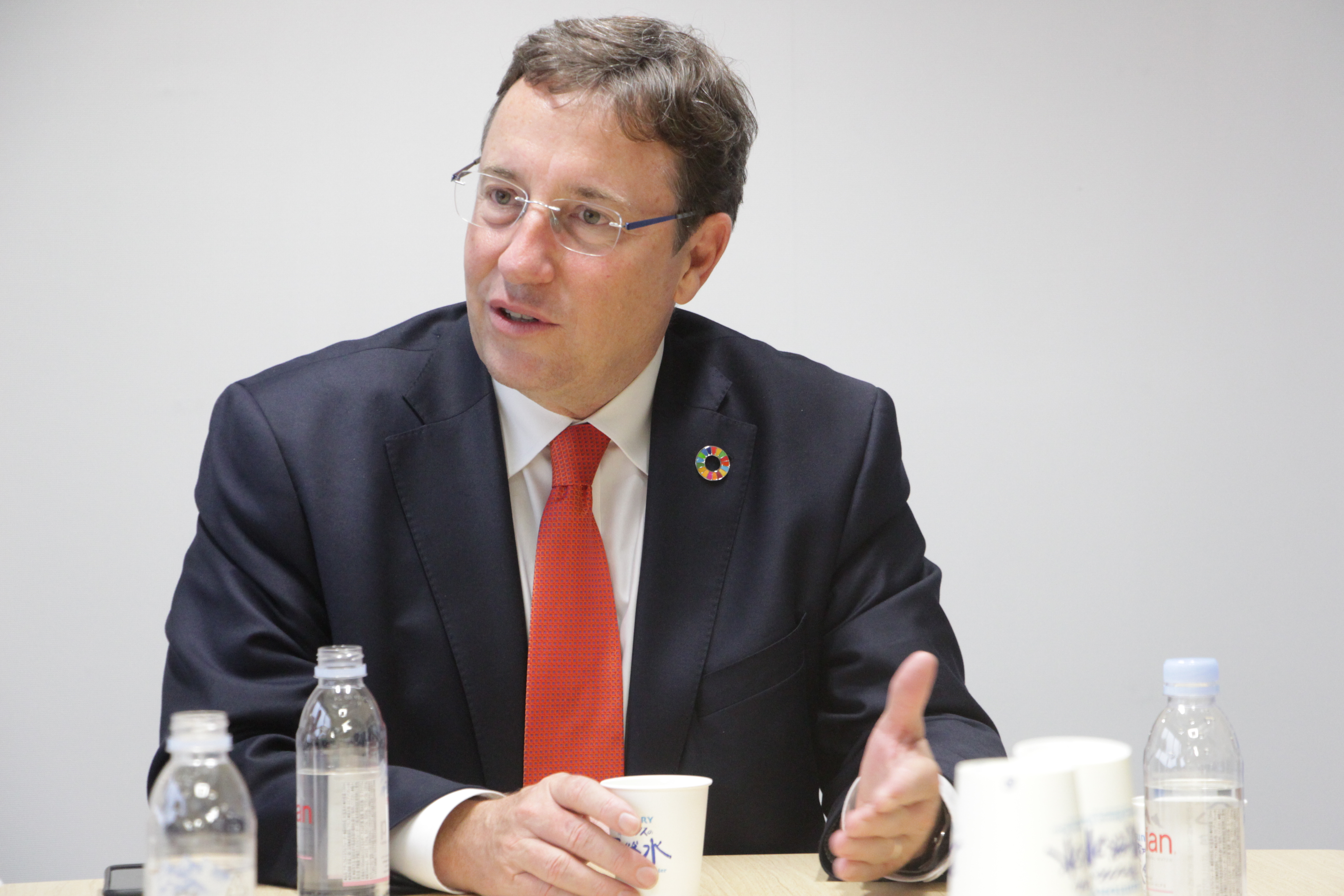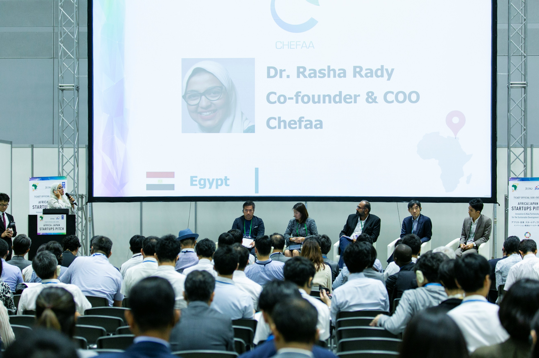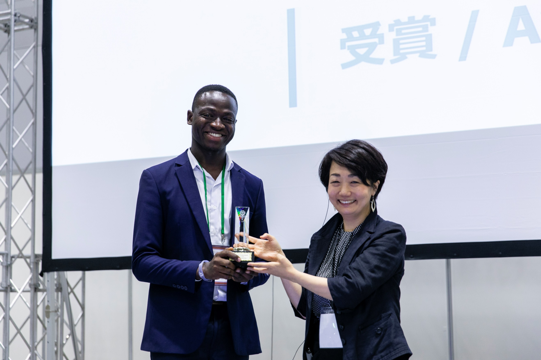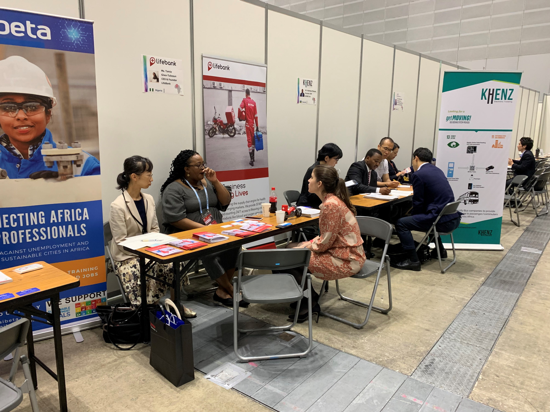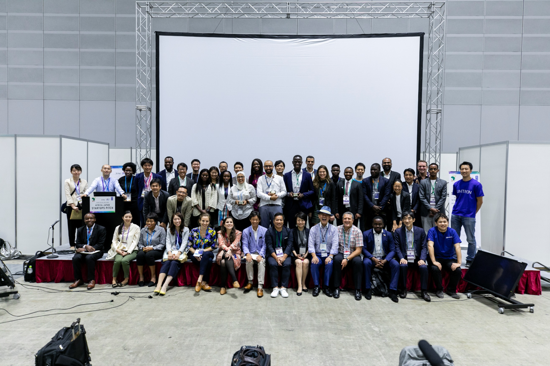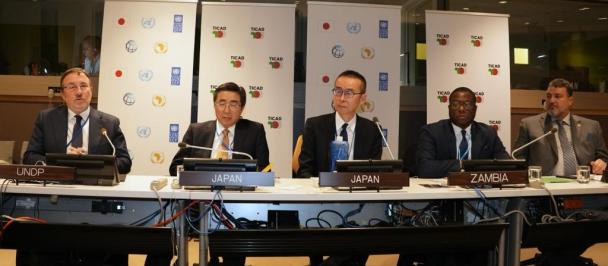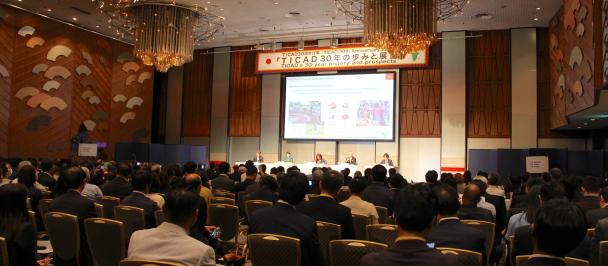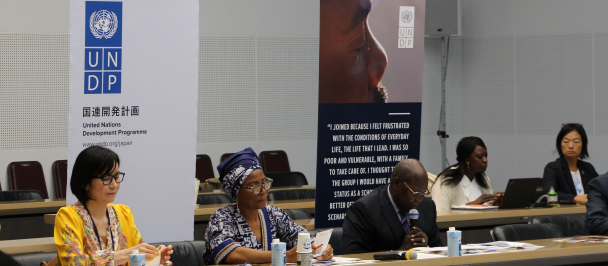Achim Steiner, UNDP Administrator in Japan
Major development challenges often require bold, novel and innovative solutions. The “Africa/Japan Startups Pitch: Innovation & New Partnerships for SDGs” event held on 30th August 2019 on the sidelines of the Seventh Tokyo International Conference on African Development (TICAD7), featured 24 startups from across Africa and Japan that showcased radical and forward-looking solutions to address some of today’s most pressing challenges, as embodied in the Sustainable Development Goals (SDGs). From healthcare to waste management and transportation, the entrepreneurs differed in their areas of expertise, but were bound by their passion for leveraging technology and innovation to make real, systemic change. 350 people were participated from various sectors and three startups won the sponsor’s awards.
The event was organized by Japan International Cooperation Agency (JICA), Japan External Trade Organization (JETRO) and the United Nations Development Programme (UNDP), under the recently launched tripartite partnership among the three parties. It began with remarks from UNDP’s Administrator Mr. Achim Steiner, with a reminder of the wider responsibility that startups and businesses must bear in society. “The role of business is not only business. The role of business is to also be a part of national development; to create jobs, to create opportunities. It’s not only about doing business to make money. It’s about making technology work for those who have been left behind,” he said.
Seven tech startups, selected from 500 applicants from across Africa, kicked off the session by showcasing their ventures for the first round on the theme of “Innovation for the SDGs”, illustrating their potential for scalability and impact on the ground. Each pitch was followed by questions, feedback and comments from a panel of seasoned venture capitalists, experts and business practitioners with extensive experience both in Africa and globally. A notable example was Egyptian startup Chefaa, an on-demand platform facilitating the delivery of medical prescriptions and which received the Asia Africa Investment & Consulting Award at the closing of the event. Similarly, the PwC Japan award was given to Ghanaian startup Health Direct Global, a platform connecting people to health service providers through secure biometric identification and financial inclusion.
The second round, “New Partnerships with Japanese Companies”, consisted of pitches from 10 deep-tech startups from seven African countries eager to collaborate with companies from Japan and across Asia. From e-payments for transportation services to innovations in health insurance and energy, the entrepreneurs combined their personal stories with their business ambitions in 4-minute pitches to pique the interest of potential Japanese partners. From this group, Casky, a Moroccan startup that protects motorcycle drivers through a smart, personal road safety IoT device that provides real-time data tracking, received the Marubeni award.
After hearing from some of the best and brightest entrepreneurs from African nations, the stage was set for seven Japanese startups with experience in or ambitions to expand into Africa. These startups covered a range of sectors, from Information Technology education to aquaculture, including one venture that uses 3D printing technology to produce affordable prosthetics for low-income families with hopes of scaling the technology to African nations in the near future (Instalimb).
Alongside the events, business meetings were held at the networking booth with startups to facilitate the match-making for future partnerships to accelerate their ventures.
Startups and SMEs are the lifeblood of many economies, and can be powerful drivers of sustainable growth. In line with the overarching theme for the TICAD7 conference, “Advancing Africa’s Development through People, Technology and Innovation”, these startups serve as prime examples of how development challenges can be addressed through business solutions. “This is a generation in which business leadership is a determining factor of what happens next. I hope that the startups pitching today will be a part of the solution, a part of the future of development,” said the UNDP’s Administrator. “You hold the key to our future.” UNDP continues to connect innovations, empower young talents and coordinate partnerships to achieve SDGs.

 Locations
Locations